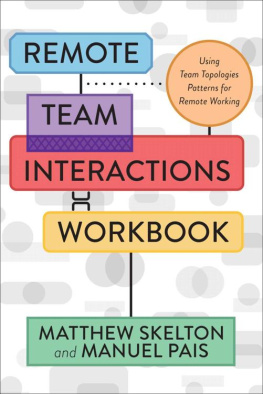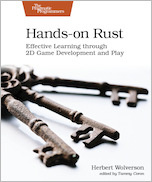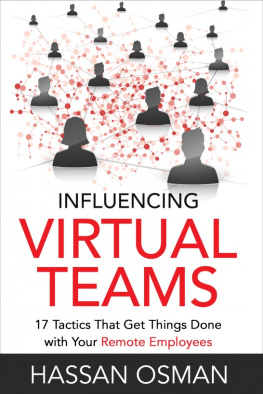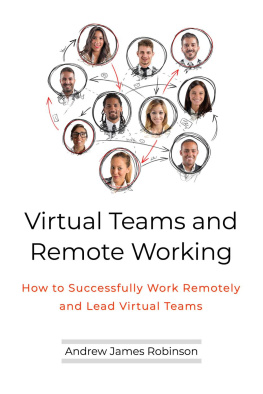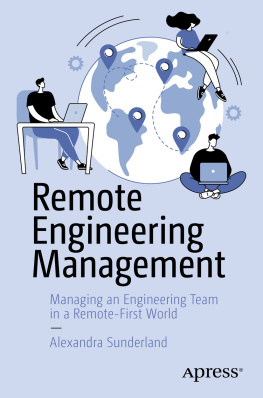Table of Contents
Remote Ability: 12 Tactics to Manage the Culture of Your Suddenly Remote Team
Copyright 2021 Russ Hill, Jared Jones, & Tanner Corbridge
All rights reserved. No part of this publication may be reproduced, distributed, or transmitted in any form or by any means, including photocopying, recording, or other electronic or mechanical methods, without the prior written permission of the publisher, except in the case of brief quotations embodied in critical reviews and certain other noncommercial uses permitted by copyright law.
First Edition
Interior design: Adina Cucicov
Introduction
Russ was walking out of a meeting in the Washington DC area when a senior executive stopped him and asked, Why dont we do the next meeting virtually?
(This book has three co-authors: Russ Hill, Jared Jones, and Tanner Corbridge. Thats why youll read the word we a lot in this book. Well share more about our background in the coming pages, but we should probably get back to Russs story. He gets mad when we interrupt his stories. Thats sarcasm by the wayexpect more.)
Russ had just finished facilitating two days of intense discussions among some of the leaders of a Fortune 100 company. The executives were deep in the work of trying to shift their culture to accelerate the results they needed to deliver. Our conversations those two days had been emotional but productive. Most participants had flown in for the meeting at the companys headquarters.
These meetings dont work virtually. Sorry. We know that would be a lot easier, but well need to get everyone back here in person as soon as possible, Russ said, as he wheeled his luggage out of the room and raced off to the airport.
Then, Covid happened.
Guess what Russ discovered? He was wrong. Embarrassingly wrong. (Happens a lot, actually.) Okay, maybe we all held the same belief. You probably did too. Most of us thought things we did in person wouldnt translate to the virtual world.
Russ and some of our colleagues met again with those executives who were in the meeting near DC more than half a dozen times in the following months. All of those meetings have been virtual. All have been remarkably productive. That companys culture is moving in the right direction. It turns out that culture can be managed effectively remotely! We have witnessed it over and over again with the diverse set of companies were privileged to work with.
Why This Book?
If youre looking for a book on how to use Zoom, Teams, or WebEx, this aint that. Sure, we can show you how to unmute yourself before speaking brilliance that no one heard, but our real expertise is in culture management. Wethe three co-authors of this bookhave nearly four decades of consulting experience with leaders like you on how to manage culture and create accountability for results.
Remoteability isnt just about how to conduct virtual meetings and how to interact with remote teams. Its also about how we engage our people and our customers in a completely different way. Any leader who isnt consciously adjusting their leadership style to this brand-new world is failing to demonstrate remoteability.
Some of you may be reading this thinking the new work environment is temporary. Perhaps youre expecting that in just a few months, everything will be back to normal and everyone will return to their desk in an office building again. You probably thought Covid-19 would be a three-month interruption too, though! Betting against change or disruption is a quick way to lose money.
While none of us can predict the future with certainty, were pretty confident that work life will never look exactly like it did pre-Covid. This work-from-home genie isnt going back in the bottle. A 2020 Global Workplace Analytics Survey found that 76 percent of people said that they want to continue working remotely after the pandemic ends. If we had to guess, based on our interaction with leaders in many companies, wed predict that a hybrid approach is the future. That hybrid will feature a lot less business travel, a mixture of in-person and virtual meetings, and a schedule comprised of at-home and in-office work weeks. That new environment demands that we all lead differently. Buckle up: Weve all got a lot of adjustments to make to how we lead our teams!
The 10-80-10 Principle
We live in a time of constant disruption. (For instance, Jared is a diehard Patriots fan. We like to remind him a lot about the disruption hes been going through.) On a much more serious note, Covid-19 is arguably the biggest disruption in decades. But its not the only one and it wont be the last. Massive and constant changes in customer and employee expectations are also driving significant disruption.
When disruptions occur, people tend to segment into three groups. Its called the 10-80-10 Principle.
The principle states that when disruption happens, 10 percent of people go into Panic Mode . This group responds to disruption in one of two ways. They crawl into the fetal position in the corner sucking on a bottle of status quo, hoping their tenure will convince the destroying angel to pass over them. Or they douse their noggin with hair spray, light a match, and scream all kinds of impractical ideas as they run through the house at full speed, hoping their urgency will cause others to think theyve got this. (Someone, please grab the fire extinguisher!)
Another group is made up of the 80 percent of people who slide into Stunned Mode. These folks did not expect the disruption and arent sure what to do in response to it. People in this group arent paralyzed or crazy but rather are sitting on their hands waiting for someone to tell them what to do. This is the group waiting for the cavalry to come over the distant hilltop and save them, when we actually need them to saddle up! They justify their lack of movement with their willingness to innovate or do things differently. They say theyre willing to be agile but actually arent. Part of them doesnt want to commit to trying a new way in case it turns out that hard work wasnt really needed. Think of the fad diet crowd, not treadmill warriors. Theyre head nodders, rather than early adopters. These folks often have great intentions but a ton of muscle memory.
The third group is the roughly 10 percent of people who jump immediately into Create Mode when disruption strikes. These are the innovators. They are the ones who have been vocal proponents of change for years. They knew the future demanded a new way of doing things and hoped someone would eventually listen to them. The people in this group are totally comfortable driving in fog. Their minds are thinking, Why pull over and wait when you can slow down a little, turn on the headlights, and keep moving? The destination is so ingrained in their minds that they literally have never even thought about visiting a rest stop. While the panicked group is freaking out, this group cant believe a moment of opportunity this big has finally arrived.
Keep in mind that where people sit on an org chart has nothing to do with which group they fall into when disruptions hit. Weve seen senior executives in Panic Mode and plenty of individual contributors in Create Mode.
______________
The 10-80-10 Principle generates a couple of questions for you:
QUESTION ONE: Which group are you in? (Are you sure?)
QUESTION TWO: How do you get more people on your team into Create Mode?
______________
Self-awareness is critical when how we work is changing so dramatically. If youre in Panic Mode, get help fast! Let go of whatever got you to this point in your career because theres no way that it will unlock opportunity in the future or help your team deliver results now. In other words, Panic Mode = Career Killer.



